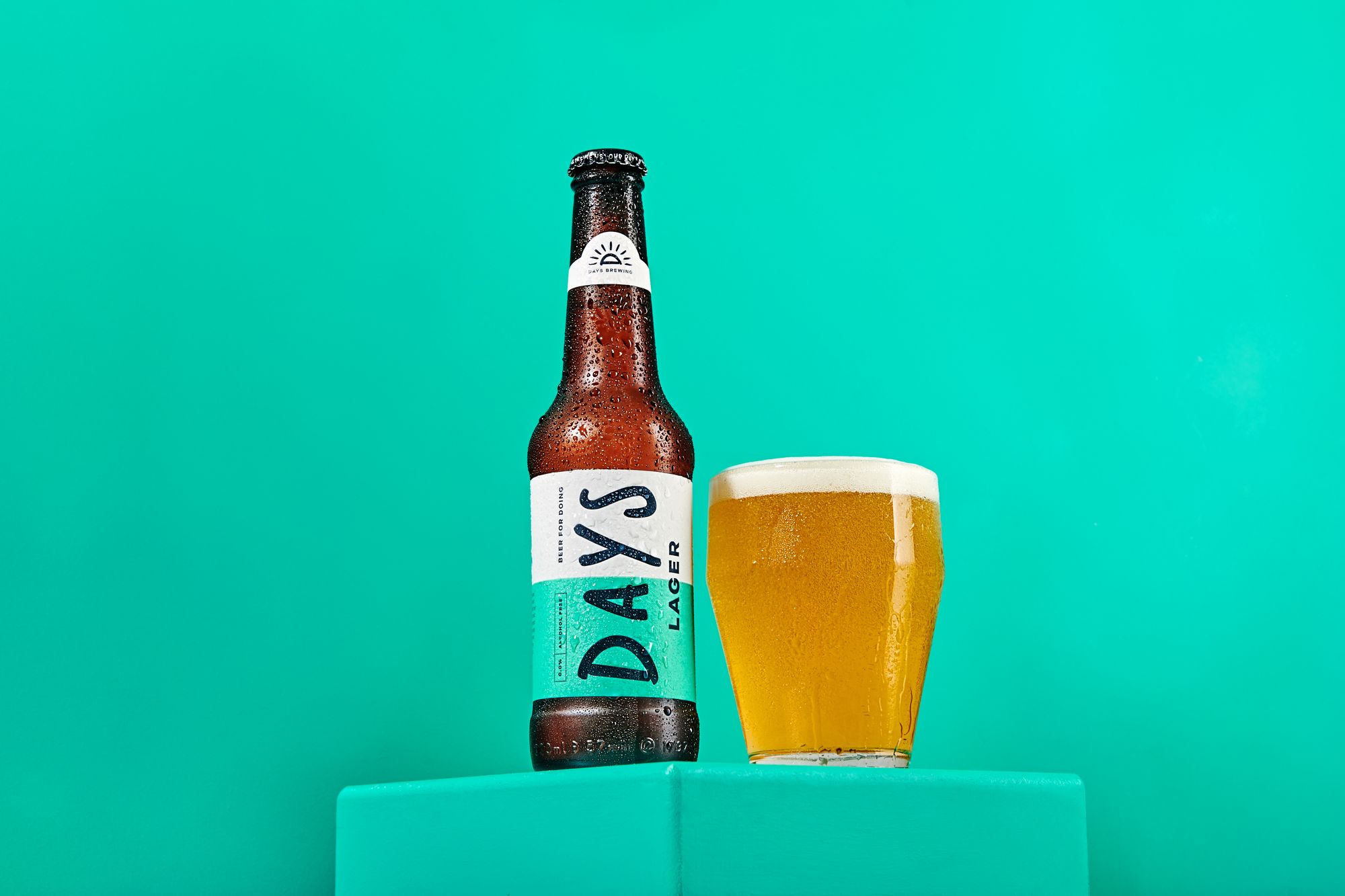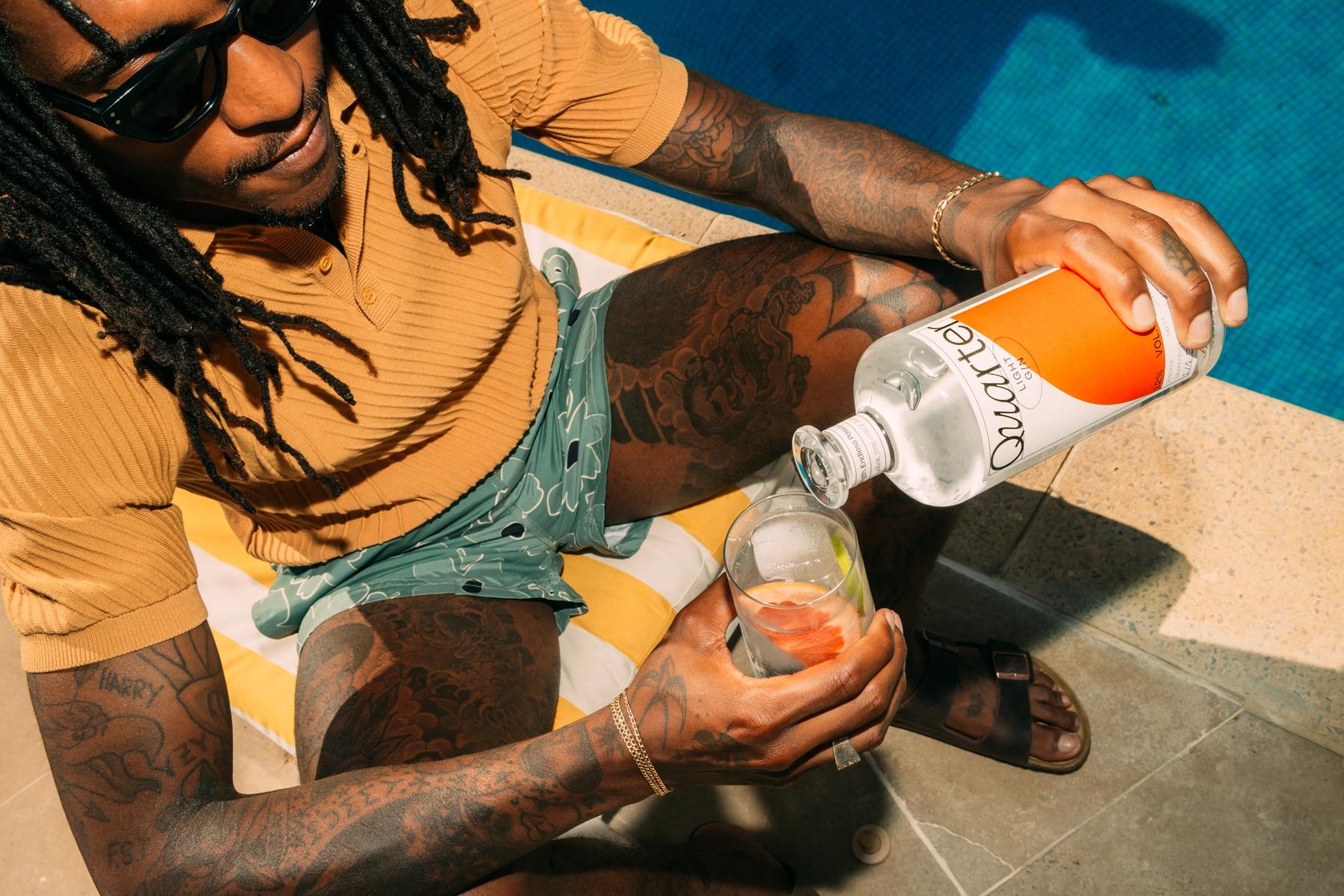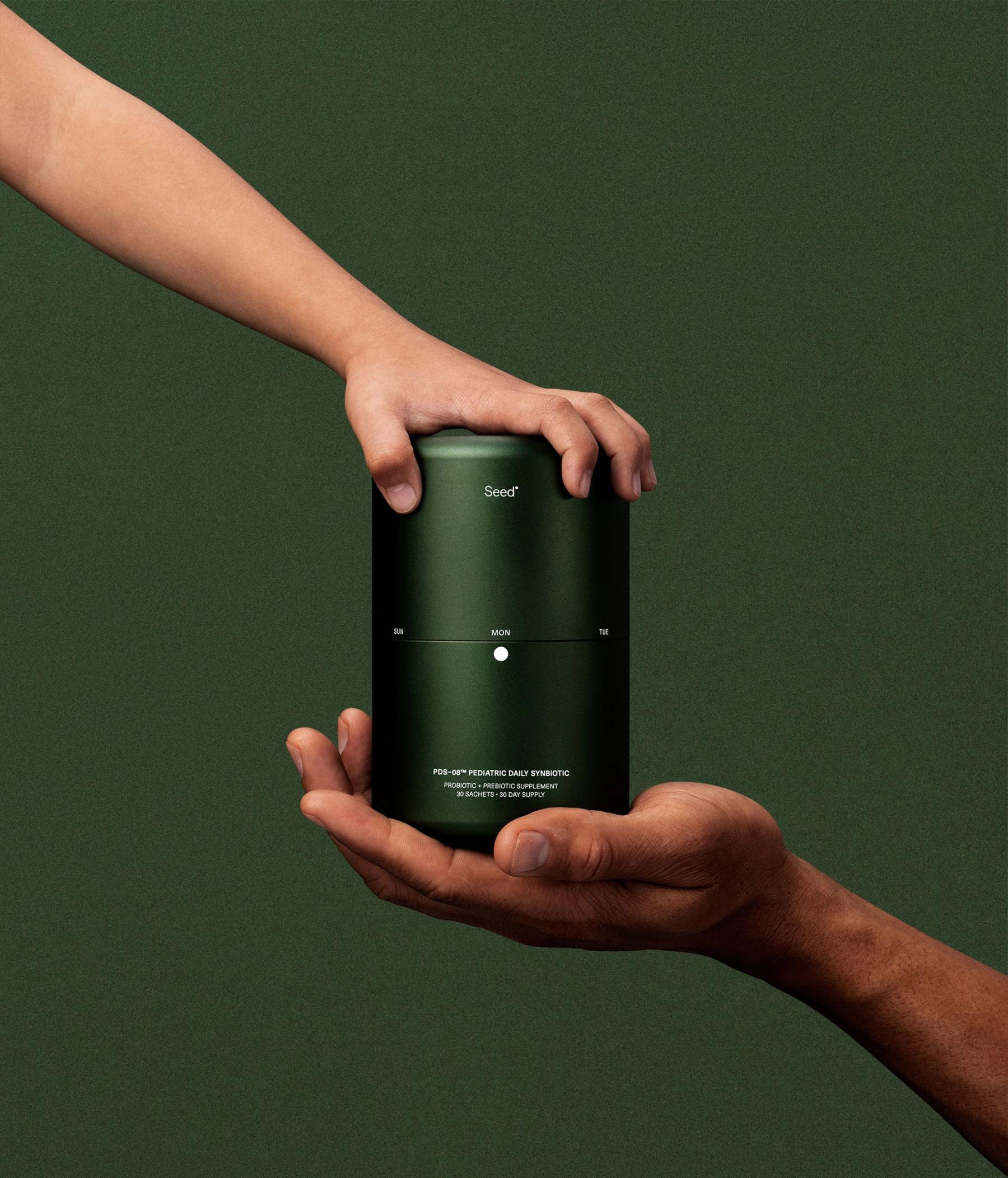We believe that harnessing the right creative relationship can be a defining step in the lifecycle of a business. Getting your brand message right at inception, evolving your digital experience ahead of scale, or delivering on a launch campaign as you enter a new market - these are high stake moments. And whether they’re foundational or pivotal, they’re junctions around which having the *right* creative partner is essential.
Today, we’re kicking off a new interview series that looks back on some of the most impactful Client x Agency connections we’ve made over the years. Exploring how they were formed. What it was that gave the Founders / CMO’s the conviction they needed to make the choices they did. Exploring what it was about their working relationships that led to such transformative and exacting work and unpacking what can be learned from their shared experience.
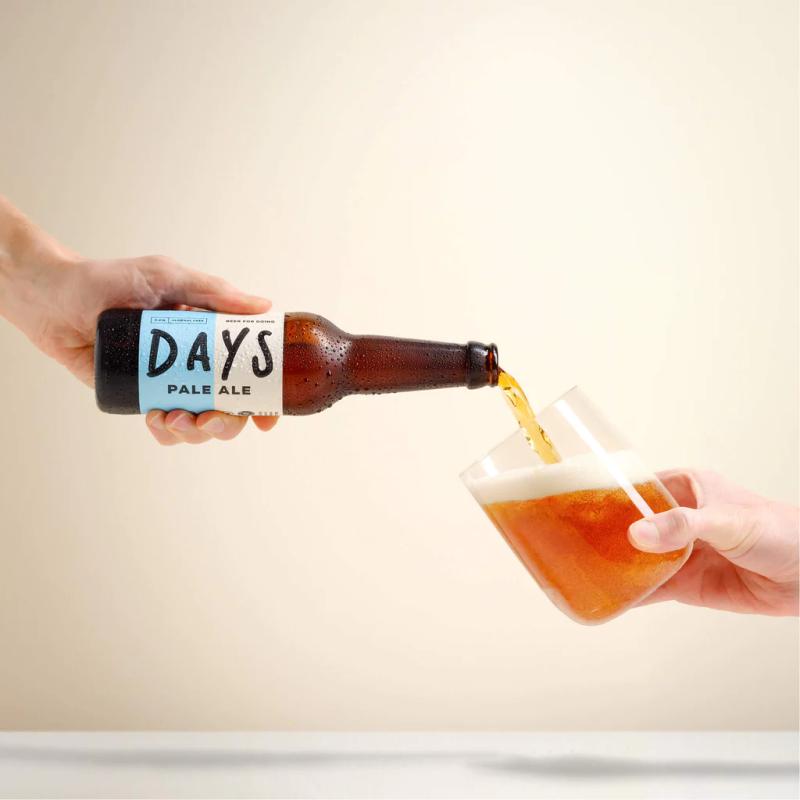
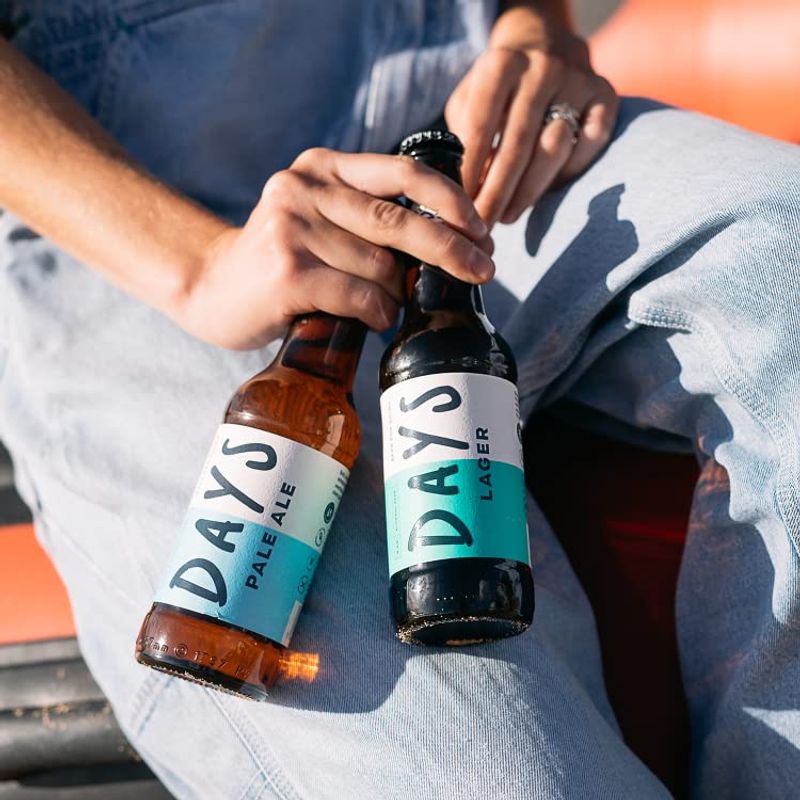
A conversation featuring JOE RYRIE, founder of London-based branding agency ONWARDS, and their long-time client MIKE GAMMELL, one half of the founding team behind the category disrupting non-alcoholic beer brand, DAYS.
- Nick BellJoe - can you introduce your agency - what does ONWARDS offer clients and what client and agency conditions allow you to make your best work?
Joe RyrieWe’re a branding agency for the businesses of tomorrow. We work with early-stage and scaling start-ups to help them define, design and launch their brands. Most of the time that means we’re working directly with founders, whether that’s helping create a brand before they launch, or redefining one that already exists. We’re at our best when we’re working with founders who want to fundamentally change a category, and recognise the importance of clarity and creativity to help them do so.
- NBFor us the main thing that differentiates one studio from the next is the collection of people who make them up. There can be many different agencies offering the same sort of creative package, yet working with each of them can be a very different experience. Is there anything particular about your team set up (or the individuals within it) that you feel defines the working experience a client will have with you guys?
JRWe’re an intentionally small team which means we only take on work we want to do, not work we have to do. So when we partner with a founding team we give them our full care and consideration, and we like to think they really feel that. We don’t have a B team to pass the work on to, so the people our partners meet at the start are the ones doing the work in the end, and there’s real continuity between the strategic thinking and the creative output. It’s not the classic agency model, but it means we get to stay close to the work ourselves, and build the kind of trusting relationships that lead to great work. We don’t think complex hierarchies of ECDs, ACDs, CDS, DDs, PMs, SDs etc. are necessary for our clients, and nor are the typical agency distinctions between strategy and creativity. In many ways we try to be as un-agency like as possible because our partners aren’t generally looking for ‘an agency’ in the classic sense. They just need talented creative people to help them push their businesses forward.
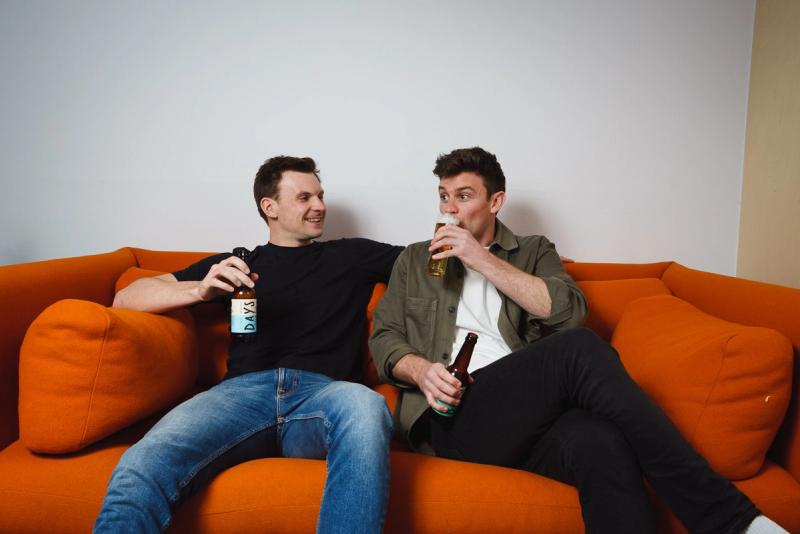
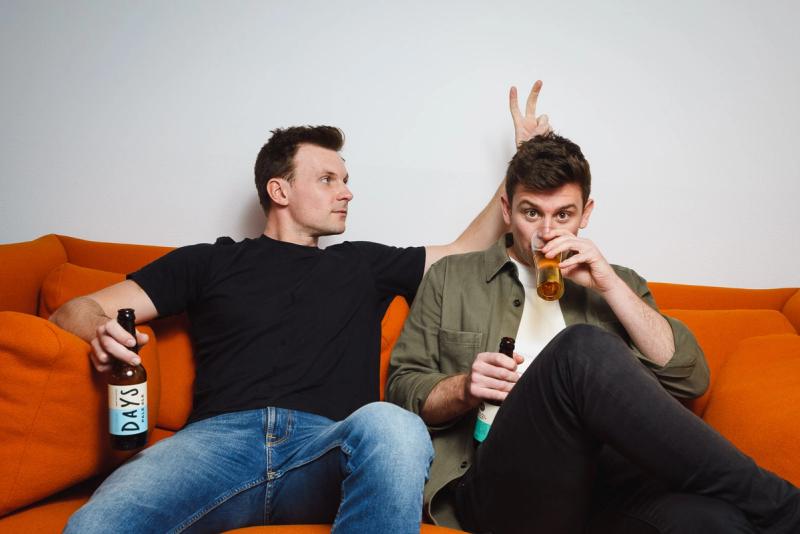
“We’re at our best when we’re working with founders who want to fundamentally change a category, and recognise the importance of clarity and creativity to help them do so.”
JOE RYRIE, Founder - ONWARDS
- Nick BellAnd Mike – can you introduce yourselves - and less about DAYS at this point, and more about you two founders - what was your background before starting DAYS and what was the catalyst that brought you together?
Mike GammellWe both love beer. We love its ability to bring people together, to spark conversations and to play a celebratory role in so many moments. However 3 years ago, we realised that we were moving away from that fantastic “beer ritual” because it no longer lined up with the way we were living our lives. We were taking our physical and mental health more seriously and realised that beer (and hangovers) were starting to loose relevancy. We got excited when we realised that beer didn’t need to always = alcohol and thought there could be an opportunity to help beer evolve. Keeping all that taste, refreshment and sociability and brewing something that worked for people choosing to live healthier lifestyles. When we looked at what was available we couldn't find a brand or liquid that didn’t feel like a compromise so with total naive optimism we quit our jobs 2 weeks before the pandemic and started on this adventure.
- NBWhen you first began the process of looking for a branding agency, how did the conversations you had with the teams you spoke to differ? Did you know what to expect from these initial meetings or were you going in a little blind?
MGBefore I met you guys (AUFI), I remember thinking “this is really hard”. I’d gone about trying to google “top branding agencies” and reached out to some contacts I’d made at ABInBev, but we were struggling to find an agency we felt got the challenges of a start-up or shared our ambition to do something differently. I was definitely going in a little blind and I didn’t fully appreciate how different the needs are for a start-up with an idea vs. a big established business.
- NBDo you recall how that first meeting with ONWARDS played out? Was there a stand-out moment that meant you put an asterisk next to them vs. the other agency conversations you were having?
MGYou guys connected us with some great agencies, but it was clear very early on that Onwards were the right partner for us. I still look back on our first meeting with Onwards as THE pivotal moment for our business. Joe is an amazing storyteller and I remember him going through some slides about how he saw the category and opportunity and it resonated with a lot of what Duncs and I had been chatting about. He bought into our desire to do things differently and straight away challenged us to think bigger and more creatively. There was also a moment where they pulled up an image of a tweet that had gone viral about “the great beers”, e.g. airport beer, post-work beer, lunchtime beer, holiday beer, and I remember knowing then that they got it. We got on well with the whole team at Onwards and left that meeting knowing we would have a lot of fun working with them.
- NBThroughout the process of vetting ONWARDS, what moments stand out as being most helpful in helping you determine they were the right partner for you guys?
MGWe liked that Onwards had experience in building digitally native brands and the quality of their copy and design was clearly first class. One of the main things that stood out was Joe’s ambition to take on “traditional” beer cues and try to create something very different. Onwards shared our ambition to create something that spoke about beer in a new way, taking it to new consumers and new occasions. I sensed that they shared our own “pain point” about beer always meaning “side effects”. They seemed genuinely excited to approach alcohol-free beer in a new fun and creative way. The fact that Joe was willing to become an investor and partner in our business also meant a great deal. It showed that he was up for the long term fight and that he was backing our ability as first-time founders. It’s always felt like a partnership with Onwards - that’s the best way to describe it.
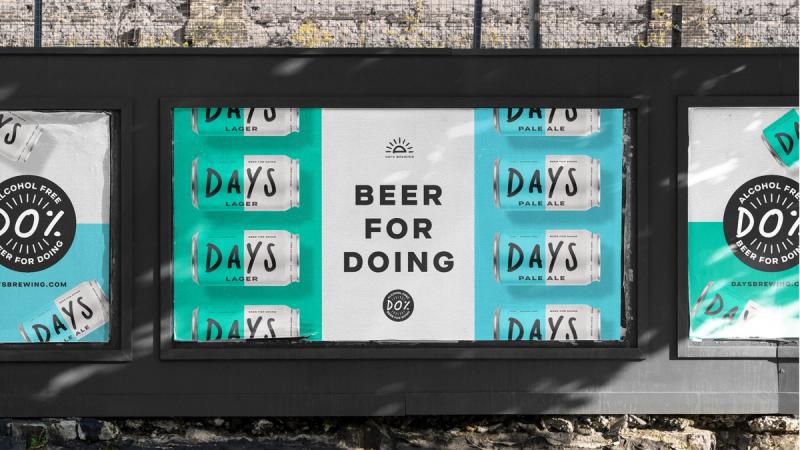
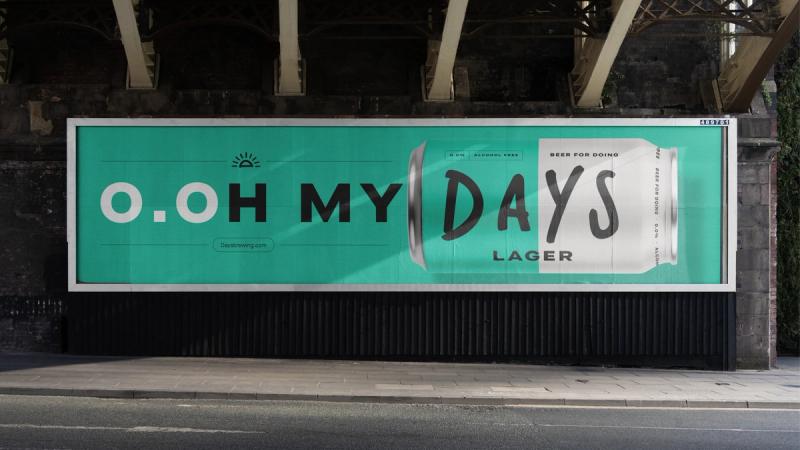
- Nick BellJoe – ONWARDS, as you say, is a small agency by design, and so naturally very selective about the type of clients you like to work with. What was it about DAYS and your initial conversation with them that got you particularly excited about the opportunity?
Joe RyrieDays ticked every box for us. A super ambitious and talented founding team, a genuinely great product, a category that was ripe for disruption and a real sense of chemistry from the off. Mike and Duncs were clear they wanted to break the rules of the category too - and placed their trust in us to help them work out how best to do so.
- NBHad you worked with any drink and non-alc bev brands prior to DAYS? What stock do you put in needing experience in a certain sector in order to solve a new challenge? Are there ever benefits to not having experience in a sector?
JRWe hadn’t. As cliché as it sounds, there’s wisdom in the idea that being new to the space gives you a fresh perspective. Mike and Duncs didn’t want to just create another non-alc craft beer brand, so I think they realised that going to a drinks-focussed agency might have actually been the riskier move. They bought into our story-first approach to branding and I think that faith was rewarded.
- NBONWARDS are invested partners in DAYS - Part of your fee was exchanged for equity in the brand. How, if at all, does this change the way you work with a founder?
JRBecause we only partner with brands and founders we believe in, taking an equity stake felt like a natural extension of how we like to work. With Days it was a no-brainer. Being officially invested in a client’s success certainly adds to the sense of connection between our teams, but our approach doesn’t change fundamentally. It’s certainly exciting though, and fun to be part of their journey. Days was our first investment, but it’s a model we’ve replicated since and hope to do more of in the future. Huge props to AUFI for helping us get our first equity deal over the line.
“AUFI just get it. After guiding us through a number of brilliant agency conversations, we zeroed-in on ONWARDS whose creativity, culture and mindset has made them the perfect agency partner for us.”
MIKE GAMMELL, CO-FOUNDER - DAYS
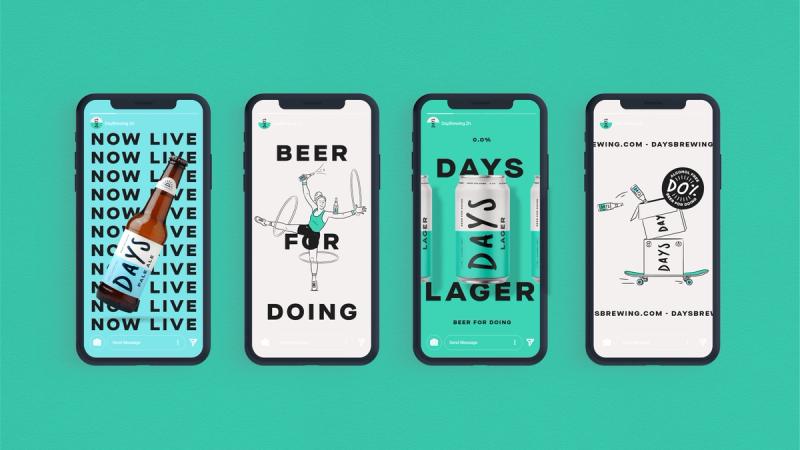
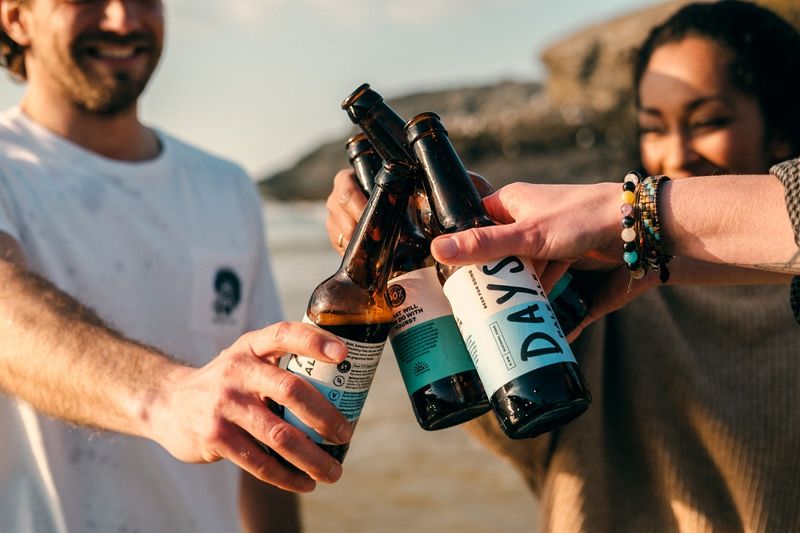
- Nick BellAnd to you guys - presumably it wasn’t just the cash saving that drove you to seek out this kind of deal?
Mike GammellNot at all. We would not have made that deal if we hadn’t genuinely wanted Joe and Onwards as long term stakeholders in our business. We started talking to them right around the time of the first lockdown and very quickly had to move our meetings and negotiations to Zoom calls. It always felt very natural with the Onwards team and we wanted them to be owners in our business. Owners care more, challenge constructively and think about building for the long term.
- NBThe name 'Days' obviously references time, and the brand talks a lot about being able to ‘do more’ with the saving you’re making by removing alcohol from the day to day. Can you talk more about the process of arriving at the brand position?
JRMost brands in the category were either low alcohol versions of existing ‘big beer’ brands, or positioned around preventing hangovers. We wanted to flip the category codes on their head and create a brand that stood for all the things non-alcoholic beer enables, not prevents. Rather than standing for no, low or zero, we positioned the brand as a way to get more out of your most precious commodity: time. That’s how the name 'Days' came about, and it led to the brand idea ‘Beer for Doing’, a simple and gettable position which has set the tone for everything the brand has done since.
- NBVisually the look and feel of the brand is quite in line with outdoors, healthy, lifestyle-focussed brands. This of course plays into so many use cases you see for the product, and is a far cry from the typical cues you see associated with the wider sector. Can you tell us about landing on that solution - was it one that came quickly or did you have to work through a lot of ideas to land there?
JRPart of our ambition for the brand was to reposition beer in people’s minds, not just reposition non-alcoholic beer. So that meant communicating in a totally different way to traditional beer brands, or existing non-alcoholic beers. When you take the alcohol away, beer becomes relevant in so many more situations, so it made sense for our visual approach to reflect what Days’ audience can do with their time. Plus we were speaking to an audience who were conscious about their nutrition and wellbeing, so connecting the brand to physical and mental fitness made sense.
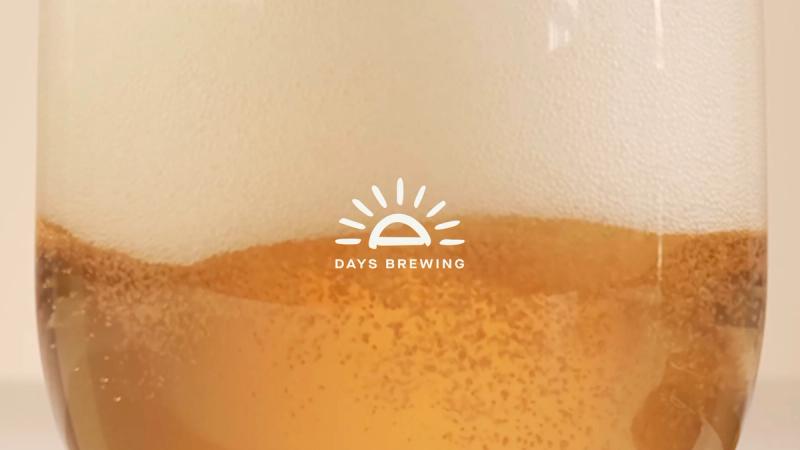
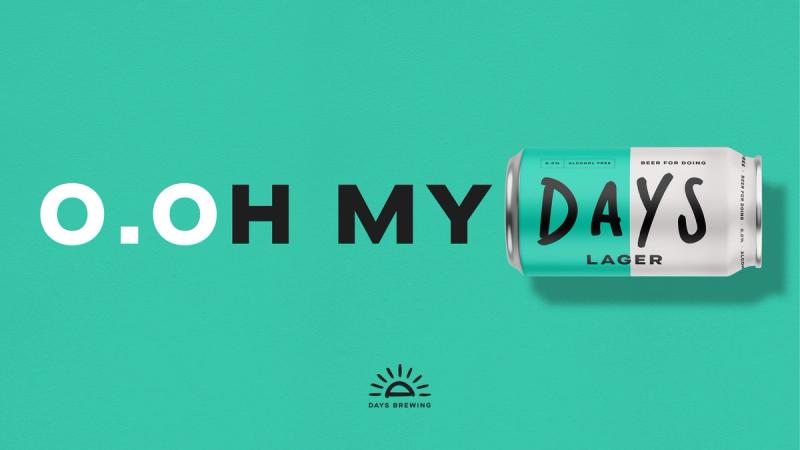
- Nick BellHow does working with early-stage founders differ from working with businesses that have more structured marketing departments? Does your working style have to adapt?
Joe RylieBy nature, founders are super ambitious people who are investing a huge amount of energy and emotion into their businesses. So the stakes are always high (even though the budgets often aren’t!). As a creative partner, you’re not just branding their businesses, you’re tasked with bringing their dreams to life. It’s always a big deal for them and going into a project understanding that is important. There will always be twists, turns and changes so being too rigid with timings, deliverables or official milestones will probably be counterproductive. Being able to empathise with the founder's journey beyond the brand project also helps, which is something we’ve now got a real appreciation for. The founders we’re working with are doing the really hard work - we’re lucky to be able to help them with the fun part.
- NBHow did you arrive at having conviction in the creative route you ended up choosing? Was it a process of learning to trust ONWARDS, or was it more a case of seeing something and instinctively knowing it was right?
MGA bit of both (which is a terrible answer). I remember Joe asking us to trust him to “push things” and we explored a range of exciting creative routes. The naming process became the foundation of the brand and I’ll always remember the first time we saw 'DAYS' during a Friday afternoon call. It was one of 3 names that stood out but we decided to take the weekend to think about it. Over that weekend we actually trademarked 'DAYS' because we liked it but we didn’t tell the Onwards team as we wanted to see where their thoughts were. Joe messaged us first thing on Monday morning and said “guys, I’ve been working something through my head over the weekend - can I show you something quickly?”. He then took us through what has become the famous Days presentation which we still use to onboard new joiners 3 years later. It perfectly summed up what we were trying to create from a brand, business and culture POV and ended with Days “Beer for Doing”- we all knew then that 'Days' was the one. After the name, we explored lots of visual routes and different identities. I think that because we sensed Onwards’ excitement for what Days could represent and we’d seen first hand how well they were able to pull things together creatively, we were really happy for them to go down different creative routes. We all had a shared idea of where we were going to get to. Duncs and I had a clear vision for the consumer, the problem and brand world, but trusted Onwards implicitly to pull it together in visuals, strategy, design and copy that we would just never be able to do. We’d have constant Zoom calls, Whatsapp threads, slacks and emails flying around during that weird lockdown period and it really felt like a partnership. We’d always look forward to the calls with Onwards because we loved seeing how they were developing this brand world.
- NBWe’ve been involved in helping a lot of founders over the years shape their brands and have seen first hand how much pressure can be associated with getting it ‘perfect’ before the big reveal. It’s seemingly a very all-consuming period….We then often see brands tweak and adapt very quickly once they’re in market, realising the building blocks of any brand can be moved around much more easily than one might at first assume (especially at that early stage of a business). Is this something you experienced?
MGWhat we loved about the brand we created with Onwards was that it was quite a broad “big idea”. Part of the challenge we’ve had over the past couple of years has been executing on that. Trying to do things that make sense in market but still stay authentic to the Days brand. I think the brand has adapted slightly over the past two years but still remains core to that “big idea” we created with Onwards. One of my learnings as a first-time founder/ brand owner is that ideas which might make perfect sense on a ppt deck are sometimes quite hard to implement in reality and don’t necessarily catch the fire you thought they might. Fundamentally Days still looks, acts and sounds the same now as it did 2.5 years ago when we first launched. One of the biggest compliments has been seeing competitor brands mimic our approach - what we’ve said and what we’ve done. That shows the brand strategy is a good one but also means we need to keep on our toes and continue to evolve. Yes we do things differently in some channels but the core remains the same- which is testament to the work Onwards did to create a brand for the long term.
- NBAs first-time founders - are there any learnings from the branding process that you would pass on to your younger selves?
MGFind great creative people who you trust to help build your idea into a brand. Founders are good at identifying problems and developing a passion for providing the solution. Great creative brand strategists can turn that solution into a brand which is so so powerful. Running a start up is very very hard. Duncs and I take so much energy from our brand and even when things are really tricky, the passion we have for this brand gives us so much confidence. Great creative partners can challenge your ideas and how you see an opportunity. There’s a reason why every time I speak to a prospective founder or brand owner, the first people I introduce them to are Onwards and AUFI.
